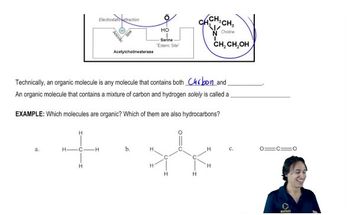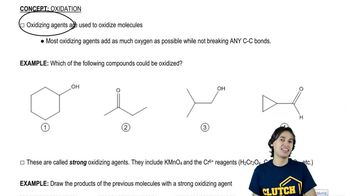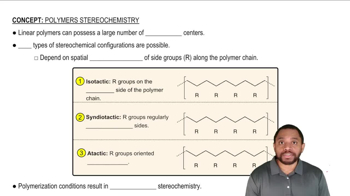Draw the organic products you would expect to isolate from the following reactions (after hydrolysis).
(m)
 Verified step by step guidance
Verified step by step guidance Verified video answer for a similar problem:
Verified video answer for a similar problem:



 6:38m
6:38mMaster General properties of hydroboration-oxidation. with a bite sized video explanation from Johnny
Start learning